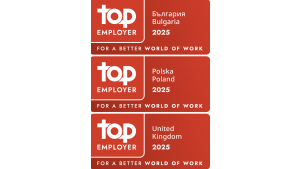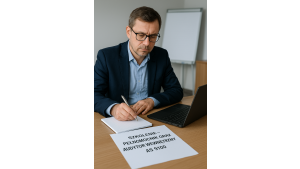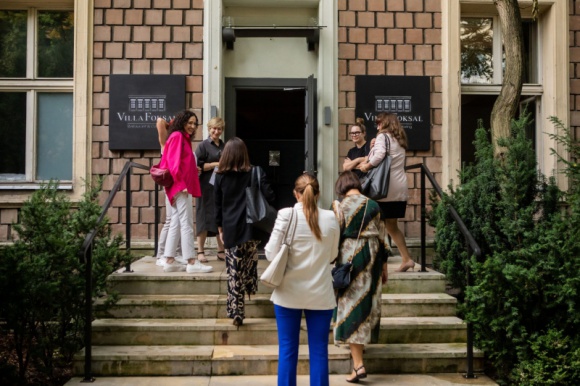The contemporary woman: Leader, partner, mother
Women in Poland have full access to both education and work, can manage their own property, and have full voting rights, won only 100 years ago. In 2022 it would seem that the goal of equality has been achieved. So why, despite the debate about gender equality that has been going on for so many years, are Polish women still giving way and conforming—in both business and family settings? Why don’t they believe in themselves and prioritize their dreams and career ambitions, even though they are better educated, accounting for 60% of university graduates, more empathetic, and much better managers, as confirmed by numerous studies? These and many other issues were discussed at the Helping Hand conference “The contemporary woman: Leader, partner, mother.”
Contemporary women combine many roles, being at the same time leaders, partners and parents, among other things. And while the same set of roles can be assigned to men as well, it is women who face more challenges and inequalities in each of these fields. According to a 2022 report by the World Economic Forum, it will take another 132 years to achieve gender equality at the current rate of progress. All speakers at the conference organized by the psychological support platform Helping Hand agreed that to accelerate these changes, we need committed parents, partners and employers, openness, mutual support and solidarity.
“In creating this conference, we said that we would contribute to increasing gender equality, but today we know that we have accomplished more than that,” said Aleksandra Tokarewicz, conference organizer, Board Member of the psychological support platform Helping Hand. “We truly hope that the debate we have initiated will not be silenced, but on the contrary will provoke change, because today equality standards should be created not only by systemic and legal solutions. Companies big and small also have an impact on building women’s self-esteem, supporting mothers during and after maternity leave, and promoting diversity and female leadership. On one hand, women are doing better and better in the labour market and reaching higher and higher levels in their careers, but they continue to face many external difficulties. And yet, women’s leadership is based on cooperation, openness, mutual support, and identifying and breaking set patterns. Companies that employ more women in managerial positions achieve better financial results. There is no doubt that we are very well prepared and competent to perform important functions. We just need to believe it and get a helping hand from someone. Therefore, our conference is also an appeal to all organizations to offer more opportunities and understanding to all women.”
Worldwide, women are twice as likely to care for children and four times as likely to devote themselves to housekeeping work (International Monetary Fund data). In the European Union alone, as many as 25% of women provide care work as a reason for their absence from the labour market, compared to 3% among men. Not surprisingly, in this context, a study by the Institute for Fiscal Studies shows that in the 12 years after childbirth, the wage gap widens to 33%, which means stagnation in women’s careers and earnings. On the other hand, women who have decided to actively develop their career paths still often face discrimination based on gender or age. The problem of ageism affects both experienced women in their fifties and young women starting their careers, just out of university. Such women are not favoured, either, by “queen bees” and “dragonesses”—female bosses who belittle the roles of other women on the team (perhaps younger and more attractive), often giving priority to men. Unfortunately, career development is often blocked by women themselves experiencing the imposter syndrome: they do not believe in their own competence and qualifications, and think that they have become successful by chance.
The imposter syndrome is inextricably linked to low self-esteem. After all, how we think about ourselves has a huge impact not only on professional development, but also on building relationships, with those around us, those close to us, and ourselves. And while we all know that nobody is perfect, women tend to belittle their abilities and constantly criticize their shortcomings. They are perfectionists, and therefore are often stuck in guilt. If they are devoted to work, they think of themselves as an outcast mother and selfish partner. If they decide to take fulltime care of their child, they accuse themselves of a lack of ambition. Earning more than their partner, they fear their partner’s bad mood and the misunderstanding of those closest to them. If they are too polite, they blame themselves for lacking toughness. But if they object loudly, they worry that they are rude. Hence, if women don’t simply decide to be themselves, trust their own decisions and boldly implement them, they will remain in this vicious circle of discontent.
Experts have no doubt that no human operates in a vacuum, and what happens in an individual’s environment has an impact on how they feel and what they think of themselves, not only personally but also professionally. External support is needed, but, as usual, the revolution is best started with oneself. Solutions abound, from raising girls in the spirit of sisterhood to become confident women, not always polite and dutiful, to building relationships without prejudice, based on partnership and motivation to make a change, to becoming professionally active in places where parity, opportunities for advancement, even at high levels, and equal pay are standard.
These are just a few of the many topics covered at the conference “The contemporary woman: Leader, partner, mother,” which was conceived and organized by the psychological support platform Helping Hand. The event was attended by twenty well-known, inspiring and experienced experts: psychologists, physicians, businesswomen, journalists, and psychotherapists. Some of them cooperate regularly with Helping Hand and share their knowledge with users of the Helping Hand platform on a daily basis.
Conference partners included Entrepreneurial Women’s Network, Kruk, ALAB laboratoria, ABSL, Polish Marketing Association and Elevato.
Media patrons: Forbes Women, Wysokie Obcasy, ICAN Institute, Woman’s Health
A full gallery of photos from the event is available on the conference website: https://events.hh24.pl/wspolczesna-kobieta/galeria.html

Capital.com z tytułem najlepszego pracodawcy 2025 r. w Wielkiej Brytanii, Bułgarii i Polsce

Spawacz, elektryk, księgowy czy specjalista DevOps i Cloud – kogo brakuje do pracy? Regiony i stawki

Szkolenie – pełnomocnik oraz audytor wewnętrzny AS 9100: klucz do jakości w branży lotniczej
Więcej ważnych informacji
 Jedynka Newserii
Jedynka Newserii

 Jedynka Newserii
Jedynka Newserii

Handel

Mercosur to tylko wierzchołek góry lodowej. UE ma ponad 40 umów handlowych, które mogą destabilizować rynek rolny
Umowa handlowa między UE a krajami Mercosur może znacząco zaburzyć konkurencję na rynku rolnym i osłabić pozycję unijnych, w tym polskich, producentów – ostrzegają rolnicy i producenci żywności. Umowie sprzeciwia się część krajów unijnych, które domagają się klauzuli ochronnych oraz limitów importowych. – Problemem jest jednak nie tylko ta konkretna umowa. Chodzi o cały system wolnego handlu, który się kumuluje z dziesiątek innych porozumień – podkreśla Andrzej Gantner, wiceprezes Polskiej Federacji Producentów Żywności.
Firma
Dzięki zdalnej weryfikacji tożsamości z wykorzystaniem AI firmy zminimalizowały liczbę oszustw. Rozwiązania wykorzystuje głównie sektor finansowy

Z najnowszych danych Eurostatu wynika, że w 2024 roku 5,9 proc. polskich firm korzystało z rozwiązań z zakresu sztucznej inteligencji. W 2023 roku był to odsetek na poziomie 3,67 proc. Wciąż jednak jest to wynik poniżej średniej unijnej, która wyniosła 13,48 proc. Jednym z obszarów, który cieszy się coraz większym zainteresowaniem wśród przedsiębiorców, jest weryfikacja tożsamości przez AI, zwłaszcza w takich branżach jak bankowość, ubezpieczenia czy turystyka. Jej zastosowanie ma na celu głównie przeciwdziałać oszustwom i spełniać wymogi regulacyjne.
Prawo
Daniel Obajtek: Własne wydobycie i operacyjne magazyny to filary bezpieczeństwa. Zgoda na magazyny gazu poza krajem to rezygnacja z suwerenności energetycznej

Były prezes Orlenu ostrzega przed zmianami w ustawie o zapasach ropy naftowej, produktów naftowych i gazu ziemnego. Jego zdaniem przygotowana przez rząd nowelizacja tzw. ustawy magazynowej i ujednolicanie unijnej polityki energetycznej to zagrożenie dla bezpieczeństwa energetycznego Polski. W jego opinii tylko silna spółka narodowa, własne wydobycie, krajowe magazyny i zbilansowany miks energetyczny zapewnią Polsce bezpieczeństwo i konkurencyjność.
Partner serwisu
Szkolenia

Akademia Newserii
Akademia Newserii to projekt, w ramach którego najlepsi polscy dziennikarze biznesowi, giełdowi oraz lifestylowi, a także szkoleniowcy z wieloletnim doświadczeniem dzielą się swoją wiedzą nt. pracy z mediami.







![Nestlé w Polsce podsumowuje wpływ na krajową gospodarkę. Firma wygenerowała 0,6 proc. polskiego PKB [DEPESZA]](https://www.newseria.pl/files/1097841585/fabryka-nesquik_1,w_85,r_png,_small.png)



.gif)

 |
| |
| |
|